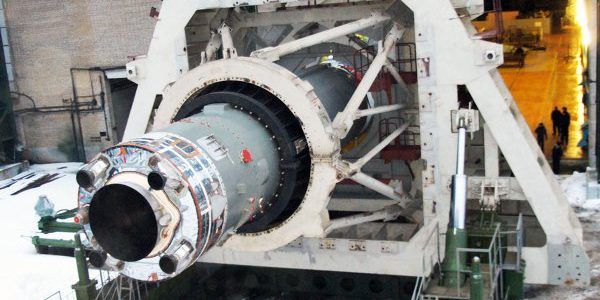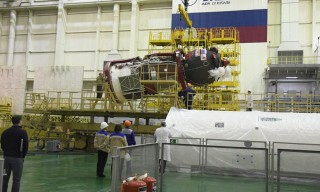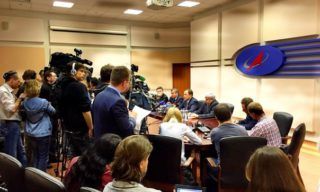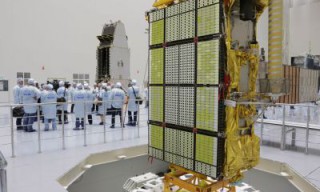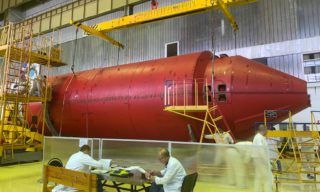Preliminary tests of 14D24 liquid control thrusters designed for the first stage of Soyuz-2.1v modernized booster were successfully completed, – JSC Chemical Automatics Design Bureau reports.
“The tests of 14D24 liquid control thruster designed for the first stage of Soyuz-2.1v booster showed good results. These tests lasted for 230 seconds, total operating time of the thrusters over 3 burns amounted to 840 seconds provided that guaranteed operation is to be 620 seconds “, – was stated in the report.
Successful completion of preliminary tests enabled to start ground experimental tests using first stage test facility as well as interdepartmental tests.
Soyuz-2.1v weighting 160 tons is a two-stage light booster manufactured by TsSKB Progress. The booster is designed to launch space devices from launching complexes of Soyuz-2.




